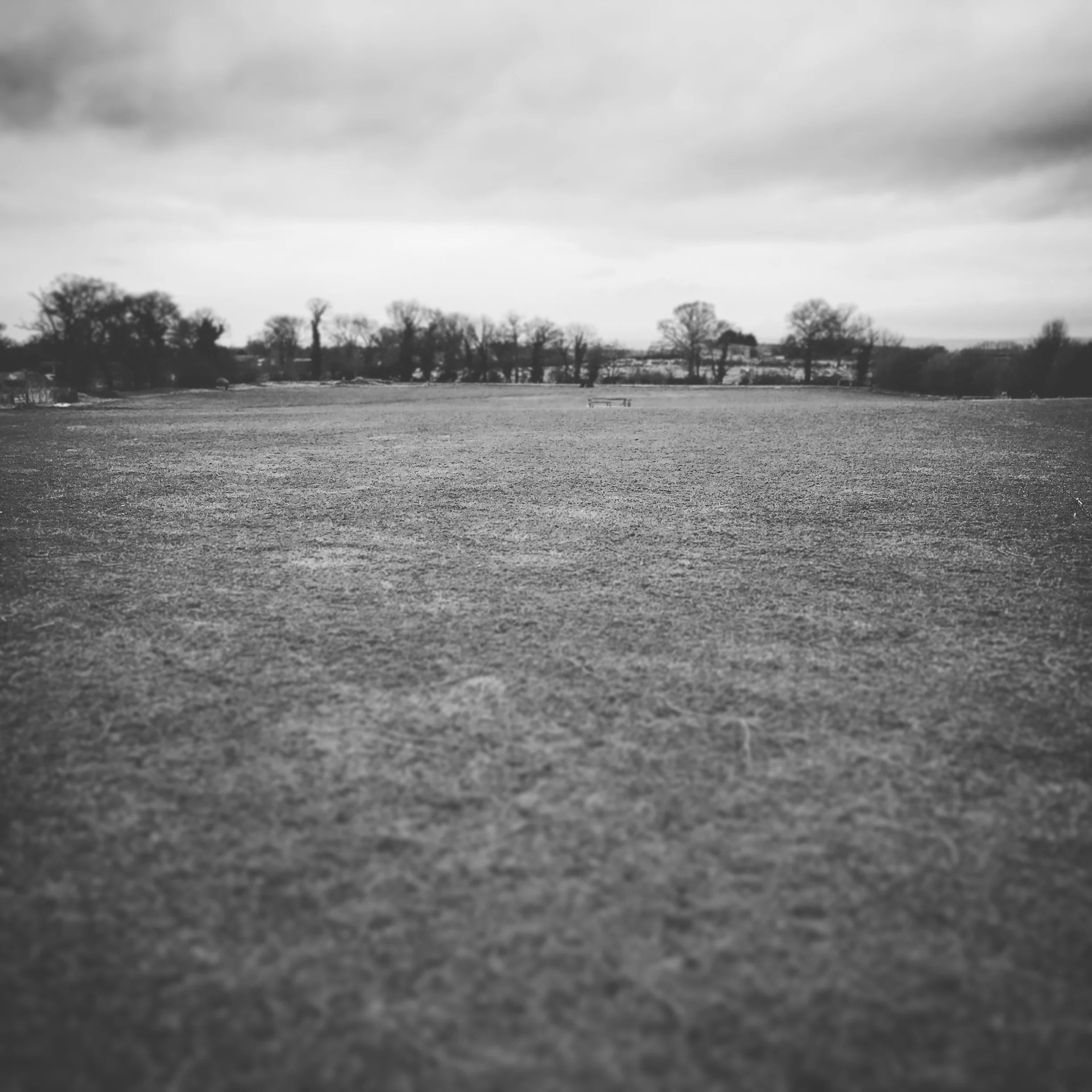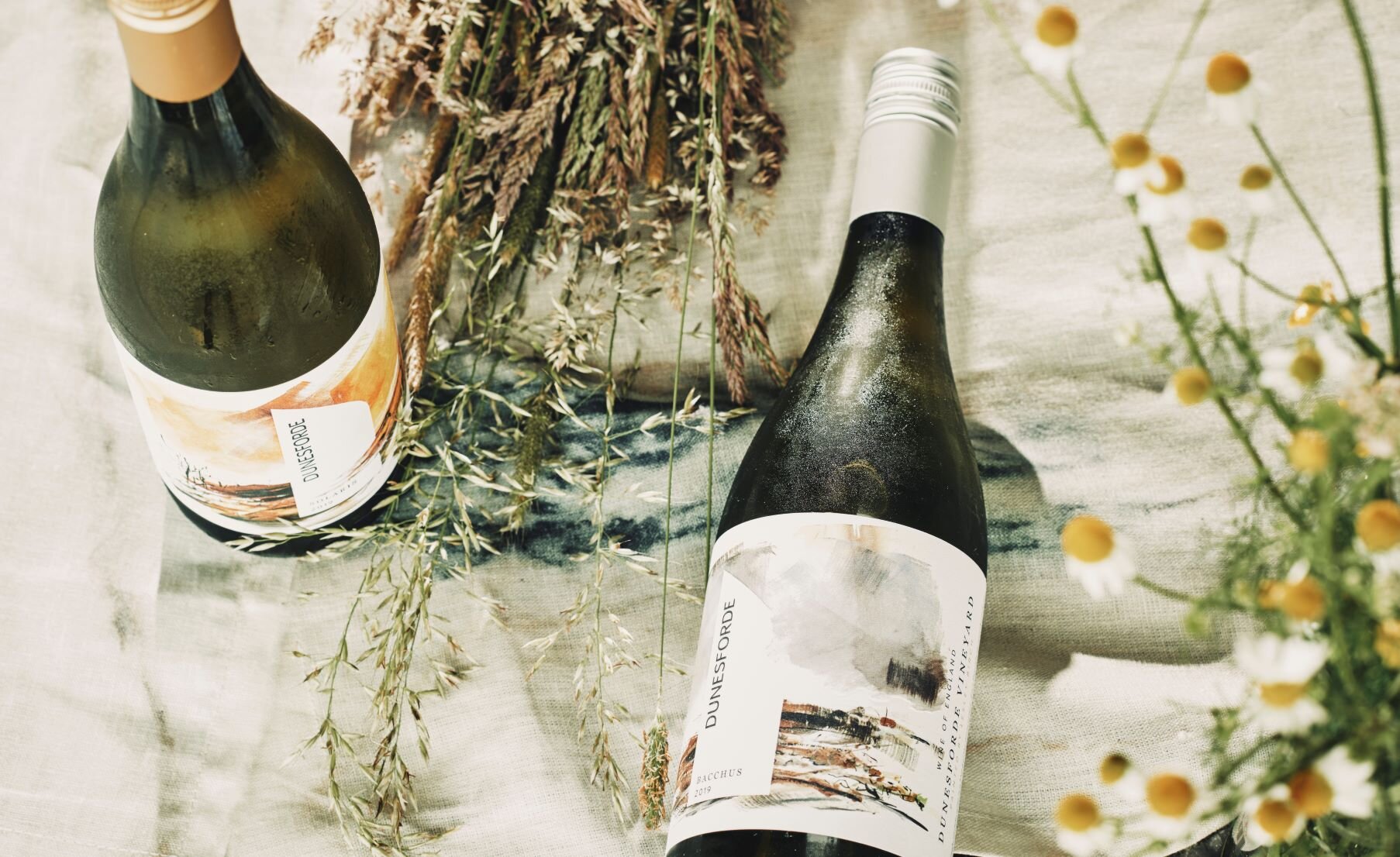our story
Welcome to Dunesforde, one of the most northerly vineyards in the UK, planted in 2016 by the Townsend family.
While the vines at Dunesforde were planted in 2016, the idea for it actually came about over a decade earlier. Dunesforde was initially inspired by the vineyards of Tuscany, where James Townsend saw first-hand the skill and passion needed to produce quality wines during his time at Castello di Potentino.
James passed on what he had seen to the rest of the Townsend family, who could also see the ways in which vineyards helped bond the local community, bringing people together through a common goal. Working in harmony with the local environment to create products of exceptional quality and craftsmanship was something we all wanted to be a part of.
English wine had been gaining quite a reputation for some time and after lengthy due diligence, involving visiting vineyards in many parts of the world, we began our search for a site in England.
After looking at many sites all over the country, it seemed like fate was calling when land in the village we'd lived in for over thirty years became available. Despite its northern location, we were encouraged by our experts' report on the Dunesforde site. The slope would help drain away the frosts; the sheltered nature of the site meant it could be a degree or two warmer than surrounding areas - vital this far north; relatively low rainfall during the vines' growing season would make the vines work hard, helping produce more complex flavours in the fruit.
With the benefit of expert advice, we carefully chose the vine varietals and root stocks to match our soil and climate.
The blank canvas in 2015
Following in the Roman’s footsteps
The history of the area fascinates us and however eccentric, there is another reason there is a vineyard in our corner of North Yorkshire today. To understand this, we need to take you back 2000 years, to a time when the Romans ruled Britain. To when Emperor Claudius first invaded in AD43. After a series of battles fought in the south, the Romans eventually worked their way north arriving in our area quite a number of years later. Whether they were battle weary or whether it was down to Queen Cartimandua (the strong-minded, influential leader of the northern Brigantes tribe) they moved in without bloodshed. Queen Cartimandua formed an alliance with the Romans and steadfastly ruled the region for over twenty years until her downfall in AD69.
The Roman mural depicting Aldborough takes shape
After which the Romans increased their presence in the north by building a series of forts from a legionary base in York (Eboracum). Roads connected these northern forts, crucial in the development of nearby Aldborough (Isurium Brigantum). By the end of the 1st Century, Aldborough had become a major settlement and eventually developed into a town with a forum, temple and amphitheatre.
Tablets were recently found at Vindolanda evidencing the buying of wine in Aldborough. Wine was ever-present in daily Roman life and as we know the Romans planted vines in Doncaster, Castleford and even Hadrian’s Wall itself, so it seems inconceivable to us that given the towns significance there wasn’t a vineyard in Aldborough too.
Dunesforde Vineyard lies only a few hundred yards from the main Roman road which connects Aldborough to York and just three miles from the town itself. During the first four centuries, Romans would have passed by our vineyard. And before them it seems quite likely that Queen Cartimandua would have also crossed our land or at least passed close by.
And so, with our Tuscan beginnings and Roman connections, Dunesforde Vineyard and its tasting rooms were born. Named after the village of Dunsforth’s entry in the Domesday Book.
Our English still and sparkling wines from Yorkshire
While we are definitely on the edge of where it is possible to ripen grapes, we believe the challenging nature of our site and longer ripening will produce more complex fruit for more interesting wines. Our aim is to produce a range of outstanding cool climate wines.
Having launched our debut still white wines in October 2019 with fantastic results, 2020 brought the introduction of five traditional method sparkling wines from the 2018 harvest – Pinot Gris, Rosé (Pinot Noir Précoce), Solaris, Blanc de Noir and the Dunesforde interpretation of the Classic Cuvée (the sparkling wine England is gaining such a reputation for). In honour of Queen Cartimandua we have proudly named this wine ‘Queen of the North’. Only two years after our debut wines were released we received our first Gold Medal in 2021 and in 2021 we were able to expand our range as our yields increase. As we look ahead we are excited to add to our medals and to push the boundaries of what can be achieved in a cool climate vineyard.
Hire Dunesforde Tasting Rooms or Cellar Door Bar and Terrace
Queen of the North room
Our two impressive tasting rooms in the vineyard building are now being enjoyed by all. The Queen of the North seats up to 12 and the Roman Room seats up to 60. With strong Roman influences and views of the vineyard, these rooms offer something very different to the usual wine experience. You can book a tour and tasting or consider a private event.
The Roman Cellar Door Bar, along with the Terrace can also be hired for your events. There are many options to host a gathering for friends, family or business at Dunesforde.
Join us for wine events, tours and tastings or look at booking the venue.
Read more about our wines and keep up to date via our newsletter or social media, following @dunesforde.





